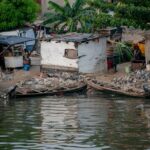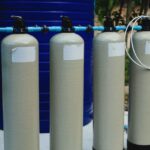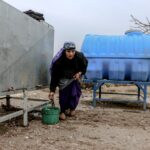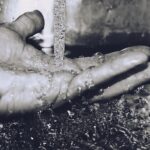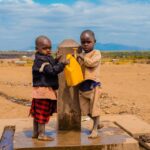Is it Safe to Drink Tap Water in Cameroon?
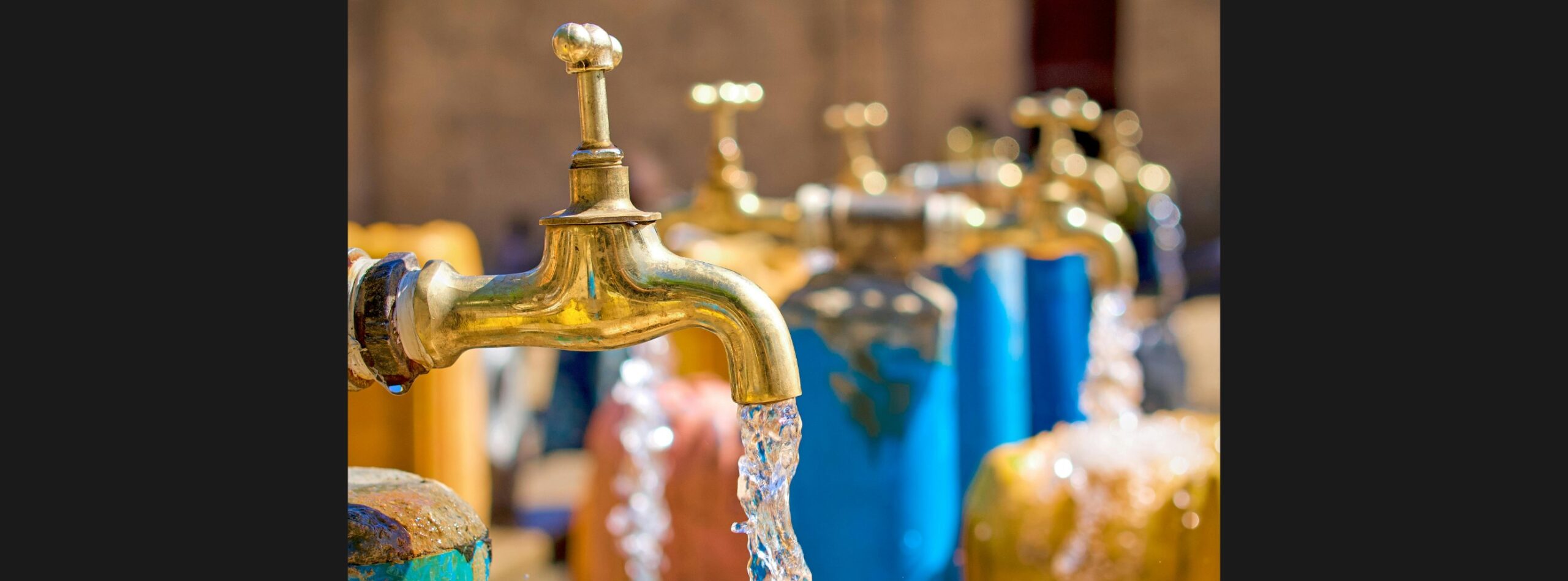
Clean water is a basic need for staying healthy. Every day, people in Cameroon rely on water to drink, cook, and wash. But what if that water isn’t safe? In many places, like Cameroon, finding clean water can be a big challenge.
Tap water is the most common source for drinking, but there are questions about its quality. If the water is dirty, it can make people sick. For years, Cameroon has faced problems with unsafe water. This raises an important question: Can you trust the tap water here?
In this article, we’ll look at Cameroon’s tap water supply and find out if it’s safe to drink.
Understanding Cameroon’s Water Supply for Drinking
Tap water is the most common supply for drinking water. Cameroonians choose tap water, even in rural areas. They have rivers, lakes, and springs close by but still prefer the tap. The sources of tap water include:
- Groundwater is a common resource for creating boreholes for tap water. They are usually dug to a great length and water is drawn out of them.
- Surface water from rivers and lakes is not the primary source for tap water systems, but some people use it to an extent in rural areas.
In Cameroon, people from different neighborhoods gather to get drinking water. This is common in rural areas. In urban areas, a compound often has its tap for easy access to water.
How is the Quality of Tap Water in Cameroon?
The quality of tap water depends on its location. It’s said that the water in urban areas, like Yaounde and Douola, is usually cleaner than the water in rural areas, but both are affected by contaminants. Contaminants can harm water quality greatly and cause water pollution.
Bacteria gotten from bathing, peeing, and pooping in rivers or lakes can affect tap water. It could also be chemicals from nearby industries, which regularly release waste that has harmful substances. Another source of contamination is the presence of heavy metals in the water. Metals like lead and copper could be found in the water supply for drinking, which when taken to the body, leads to terminal illness and lead poisoning. Lastly, due to poor hygiene and poor sanitation, the source of tap water could be affected thereby making the water harmful to drink.
Common Waterborne Diseases in Cameroon and their Health Risks
Drinking unsafe water is one of the fastest ways to get sick. In Cameroon, many people still rely on untreated water from rivers, wells, and taps, which may contain harmful germs and chemicals. These can cause serious diseases known as waterborne diseases. Below are some of the most common ones and their health risks:
1. Cholera
Cholera is a deadly disease caused by bacteria in contaminated water. It leads to severe diarrhea and dehydration. If untreated, it can cause death within hours. Cholera outbreaks happen in areas with poor sanitation and limited access to clean drinking water.
2. Typhoid Fever
Typhoid fever is a bacterial infection that affects digestion. It causes high fever, stomach pain, headaches, and weakness. If left untreated, it can lead to serious complications and even death.
3. Dysentery
Dysentery happens when harmful bacteria or parasites infect the intestines, causing bloody diarrhea and stomach pain. It spreads through dirty water and poor hygiene. Children are especially at risk.
4. Bilharzia (Schistosomiasis)
Bilharzia is a disease caused by parasites found in freshwater. The parasites enter the body through the skin and damage organs like the liver, bladder, and intestines. It can cause stomach pain, blood in urine, and long-term organ damage.
5. Giardia and Amoebiasis
These are tiny parasites that infect the stomach and intestines. They cause diarrhea, nausea, and stomach cramps. People get infected by drinking dirty water or eating food washed with unsafe water.
6. Lead Poisoning
Lead is a toxic metal sometimes found in old water pipes or polluted sources. Drinking water contaminated with lead can cause serious health problems, especially in children, affecting brain development and causing learning difficulties.
7. Chemical Contamination
Industrial waste, pesticides, and chemicals from farming can mix with drinking water, leading to poisoning over time. Long-term exposure can damage organs like the liver and kidneys.
How Poor Water Quality Affects Daily Life in Cameroon
Water is very important in most aspects of life and unsafe drinking water impacts people’s daily lives beyond diseases and illnesses. Aside from waterborne diseases, like cholera and diarrhea, which puts a hole into one’s pocket as a result of high medical costs, there are other areas of impact:
- Impact on Education – Sick kids can’t go to school, hence lower school attendance.
- Economic Impact – Businesses will suffer if workers get sick from contaminated water.
What is the Government Doing?
The thought of what the government is doing about the situation could pop into your head. They created public organizations like Camwater to tackle tap water cleaning.
The Cameroon Water Utilities Corporation (Camwater) provides safe water, especially in cities. They are mostly responsible for the tap water systems in urban and rural areas. In addition to that, they also build more water treatment plants and partner with organizations to improve access to clean water.
Apart from the government, non-profit global organizations like Aqua Maya, whose work focuses on ensuring that even remote areas have access to safe drinking water, are helping to provide clean water to underserved communities.
The Challenges
A lot of challenges come with tap water supply, some of the challenges are:
- Many old water pipes are still in use.
- Some water projects lack proper funding.
- Climate change is making water shortages worse.
While improvements are being made, tap water in Cameroon is still not consistently safe for drinking.
Safe Alternatives to Tap Water in Cameroon
Since tap water in Cameroon is not always safe to drink, it’s important to find other ways to stay hydrated without risking your health. Whether you live in Cameroon or are just visiting, here are some safer options for drinking water:
1. Bottled Water
Bottled water is one of the safest choices because it is sealed and properly packaged before being sold. Many stores and vendors sell bottled water, and trusted brands like Supermont and Tangui are widely available. Always check the seal to make sure the bottle has not been opened before you drink it.
2. Boiled Water
Boiling water is a simple and effective way to kill germs. If bottled water is not available, you can collect tap water or well water and boil it for at least one minute to make it safe. Boiled water is a great option for both drinking and cooking.
3. Sachet Water
Sachet water, also called “pure water,” is a popular option in many parts of Cameroon. It is sold in small plastic bags and is often cheaper than bottled water. However, not all sachet water brands are safe, so it’s important to choose brands that are properly sealed and have been approved by health authorities.
4. Spring or Well Water
In some areas, natural springs and deep wells provide clean water. However, it’s important to check if the water source is protected from pollution. If a spring or well is properly maintained, it can be a good alternative to tap water.
How to Check if Your Drinking Water is Safe
Even if you are using an alternative to tap water, it’s still important to check if it is safe. Here are some ways to do that:
- Boiling Test – If water turns cloudy after boiling, it may have dirt or bacteria and should not be consumed.
- Smell and Taste Check – Safe water should have no strong smell or unusual taste. If it smells like chemicals or metal, it might be contaminated.
- Local Water Reports – Check if health authorities have reported any contamination in your area.
By choosing safer drinking water options and testing the quality of your water, you can avoid diseases and protect your health in Cameroon.
Conclusion
Access to clean drinking water in Cameroon remains a significant challenge, particularly in rural areas where water sources are often contaminated. The presence of harmful bacteria, parasites, and heavy metals in tap water has led to widespread waterborne diseases, posing serious health risks to the population. While the government, through organizations like Camwater, has made efforts to improve water infrastructure, many challenges persist, including aging pipelines, inadequate funding, and climate change-related water shortages.
In response to the water crisis, organizations like Aqua Maya have stepped in to provide clean water solutions, especially in remote and underserved areas. Their efforts, along with those of the government and other nonprofits, are essential in ensuring more Cameroonians have access to safe drinking water. By increasing investments in water treatment, expanding community awareness, and encouraging safer alternatives like bottled and boiled water, Cameroon can make significant progress in securing clean drinking water for all its citizens.
Ultimately, ensuring access to safe drinking water requires a joint effort from the government, non-profit organizations, and local communities. With continued investment and commitment, the dream of clean water for every Cameroonian can become a reality.
Sources
1. https://www.who.int/news-room/fact-sheets/detail/drinking-water
2. https://pmc.ncbi.nlm.nih.gov/articles/PMC2963764/
5. https://www.who.int/emergencies/disease-outbreak-news/item/2022-DON374

